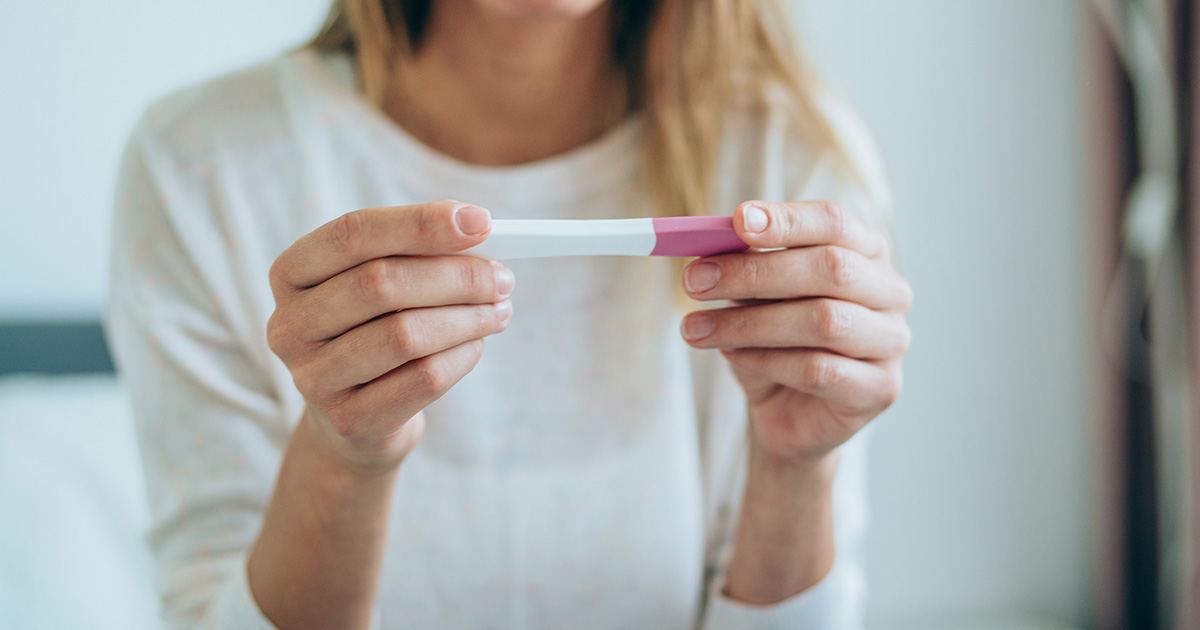
Pregnancy
5 Pregnancy Conditions You’ve Likely Never Heard Of
When it comes to pregnancy, you can read all of the books and blogs, belong to the many pregnancy forums, talk to your girlfriends who have kids, and still not feel ready for the changes that can happen to your body. That’s natural!
Many women will tell you you’re never fully ready for pregnancy until it happens, but that you learn as you go. Of course, as women, we like to do our own research and feel as informed as possible. That’s why we’re shedding light on some of the surprising pregnancy conditions you may not have heard of before. After all, when you’re in the know, you have the power to be an advocate for your own health!
- Intrahepatic Cholestasis of Pregnancy(ICP): Intrahepatic Cholestasis of Pregnancy (ICP) is a family of liver disorders that occur only during pregnancy, caused by elevated bile acids in a woman’s blood. There is typically only one common symptom of ICP – moderate to intense itching. Though it can be felt all over, most women experience this itching on their hands/wrist and ankles/feet, with itching becoming worse at night. If left untreated, ICP can pose risks to your unborn baby, including stillbirth. If you’re experiencing any of these symptoms, it’s important to consult your doctor who can perform a test for ICP and provide medication, if needed. Those diagnosed with ICP will need to be monitored by a maternal-fetal medicine specialist, and will require induction, typically around weeks 37-38 in pregnancy.
- Placenta previa: Your placenta is an essential structure that helps to provide oxygen and remove waste from your baby during pregnancy. In normal cases, it attaches to the side of the uterus, but in cases of placenta previa, it grows abnormally, covering the cervix. Most women with this condition will experience bright red vaginal bleeding, and may also have contractions. In some cases, it will resolve on its own. However, if it progresses later in pregnancy, it’s less likely to resolve on its own. If you experience bleeding during your second or third trimester, you should consult with your provider. They may limit your activity to reduce the bleeding or may need to perform a C-section, if the bleeding is more severe.
- Gestational diabetes: Gestational diabetes is a specific type of diabetes that occurs in pregnant women, who did not have diabetes before. Somewhere between the 24th and 28th week of pregnancy (although this can also happen earlier), changes in hormone levels can trigger insulin resistance — one of the main drivers of gestational diabetes. Having gestational diabetes can increase the risk of complications for you and your baby — from increased birth weight to a higher risk of obesity and type 2 diabetes later in life. Fortunately, if you act quickly, regular exercise and a well-balanced diet can help to manage blood sugar levels. In some cases, your provider may prescribe insulin and provide you with a glucometer to monitor your blood sugar levels. Overall, the condition can be treated and managed with proper interventions.
- Congenital Cytomegalovirus (CMV): Cytomegalovirus (CMV) is a common virus that rarely causes problems. However, if you develop an active CMV infection while you are pregnant, you have the risk of passing it onto your baby, which is known as congenital CMV. Congenital CMV is the leading cause of deafness in children, outside of genetic disorders, and can lead to other birth defects like microcephaly. CMV can be transmitted through saliva or tears of a young child. It’s recommended that pregnant mothers who have another young child at home practice good hygiene. This includes cleaning children’s toys and countertops, carefully disposing of contaminated items like diapers or tissues, and washing your hands often with soap and water.
- Pica: Sure, it’s normal to experience strange cravings during pregnancy (pickles and peanut butter, anyone?), but there could be cause for concern if you start craving nonfood items. Pica is a condition where women compulsively eat nonfood items like dirt, clay, ice, soap, or coffee grounds. While this may sound odd, it’s more common than you may think. The exact cause of pica is unknown, but dieticians believe it could be due to a vitamin or nutritional deficiency. When it occurs during pregnancy, it’s important to address as it could prevent your baby from receiving proper nutrition. To treat pica, your doctor can assess your diet and help create a healthy meal plan to make sure you and your baby are getting enough nutrients.
Pregnancy can be an overwhelming experience, but it’s important to know you’re never alone!
Our team of providers will be there with you every step of the way to discuss any questions you may have, help you sift through the latest health information, and stay on top of your care through regular check-ins.
Similar Articles

February 16, 2026
Understanding Your Pregnancy Odds: A Guide to Fertility in Your 20s, 30s, and 40s
Pregnancy
Read More
April 7, 2025

August 22, 2024































